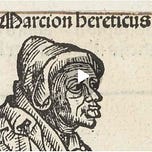Christians reacted to last week’s interview with Laurent Guyénot by disagreeing with Guyénot’s assertion that the Old Testament is very bad scripture, that Yahweh is basically Satan, and that Jesus never claimed to be the Messiah. Patrick Chenal, a Catholic listener, and Ed Kendrick, a spiritual seeker and pioneer of the “Israel did it” school of the 9/11 truth movement, continue the discussion.
Excerpt
Ed Kendrick: I'm kind of a Heinz 57 as far as religious experience, starting with Southern Baptists, moving into Mary Baker Eddy's Christian Science as my mother had cancer. We were trying to seek a cure through spirituality. Then moving on to Unity, that's in Lee's Summit, the Unity School of Christianity. And then moving into meditation, Buddhism, Baha'i, Scientology eventually for a year and a half, and I went legal against Scientology to get out. That's an interesting story but we don't need to go there right now. Where I'm at right now is I'm at a bit of variance to contemporary Christians in the context of the I am references. “I am the way, the truth, and the life.” Moses at the burning bush, the burning bush suggested he tell his people that I am sent him. And Jesus met on this road by a stranger, replied to the stranger, I am that I am.
The concept being something I encountered about 50 years ago, a pastor named Rocco Errico, who grew up in Mesopotamia, and he's a biblical scholar. And he comes from the Essene standpoint of the definition of I am as a central viewer, the watcher, the witness that we all have in Hindu traditions. It would be what we acknowledge when you say namaste to someone and that you acknowledge that core self that you see in the other in front of you that we all share.
I'm quite uncomfortable with taking things on belief, which by definition requires no evidence. And I'm quite an advocate for things that we can mutually verify, not because of a majority rule or the loudest voice, but things that we can verify when we start talking about epistemology and the relationship of science and spirituality.
Kevin Barrett: Those are two very different perspectives. And they're different from mine, and they're different from Lauren Guyenot’s. We've got a diversity of viewpoints here. Patrick, in a way, your viewpoint, the traditional Catholic viewpoint, is in some ways closer to sort of the long-term Western consensus. There's a doctrine. There are some things that are taken on faith, but there are mechanisms for empirically verifying things. In the first hour, I was just talking about miracles with Eric Wahlberg, And the Catholic Church is well known for doing very extensive investigations of reports of paranormal phenomena that might be accepted as miracles and as evidence for somebody's sainthood. So there is a tradition of empirical research in certain respects in Catholicism, as well as a whole doctrinal approach to what's really going on. And some of that does require faith.
So Patrick, what's your take on sort of the relationship between faith and investigation, skepticism, looking for evidence?
Patrick Chenal: Well, I would point out that the word faith in Hebrew means understanding. And if you understand something, then you know that it's true. And if you know it's true, then you have hope in something, which is trust. And then love comes after that, and that would be mercy.
You were talking about miracles. I'd say one of the greatest miracles in history in regard to Catholicism would be the resurrection of Jesus Christ from the dead. And recently I read the Gospel of Mark, of Jesus meeting the two followers that were on the road to Emmaus, where he appeared and broke bread with them…
When we regard Catholicism, we have the Eucharist, which is the body and blood of Christ in the form of bread and wine, which is the heart of Catholic worship. We go on Sunday to church and we participate in that.
Now, when Jesus met these two on the road to Emmaus, he mentioned to them that he was the one prophesied from the time of Moses and throughout the Old Testament. So, that right there gives evidence against the Marcionite claim that Jesus had nothing to do with the God of the Old Testament, which is quite a stretch. And I think a lot of that comes from people who are trying to justify their behavior. And a lot of times they do it to justify their bad behavior so that they can revert to the old way and say, well, God is just this revengeful, almost like demon-like figure that takes revenge and kills entire peoples, like the story of Sodom and Gomorrah, when God saw that they were so evil that he wiped them out.
It's quite a shock to people today, that sort of thing. Why would God do that? It really begs the question that most people who aren't of the faith have, that if God is so good, if God is totally good, then why does he allow evil to occur? And I think this kind of involves sort of magical thinking in a way because it's like saying that God is God and that he doesn't have the power of life and death and the ability to take something that is evil, like, for instance, the death of Jesus, his only begotten son, and make it into something glorious, which is his resurrection.
I












Share this post